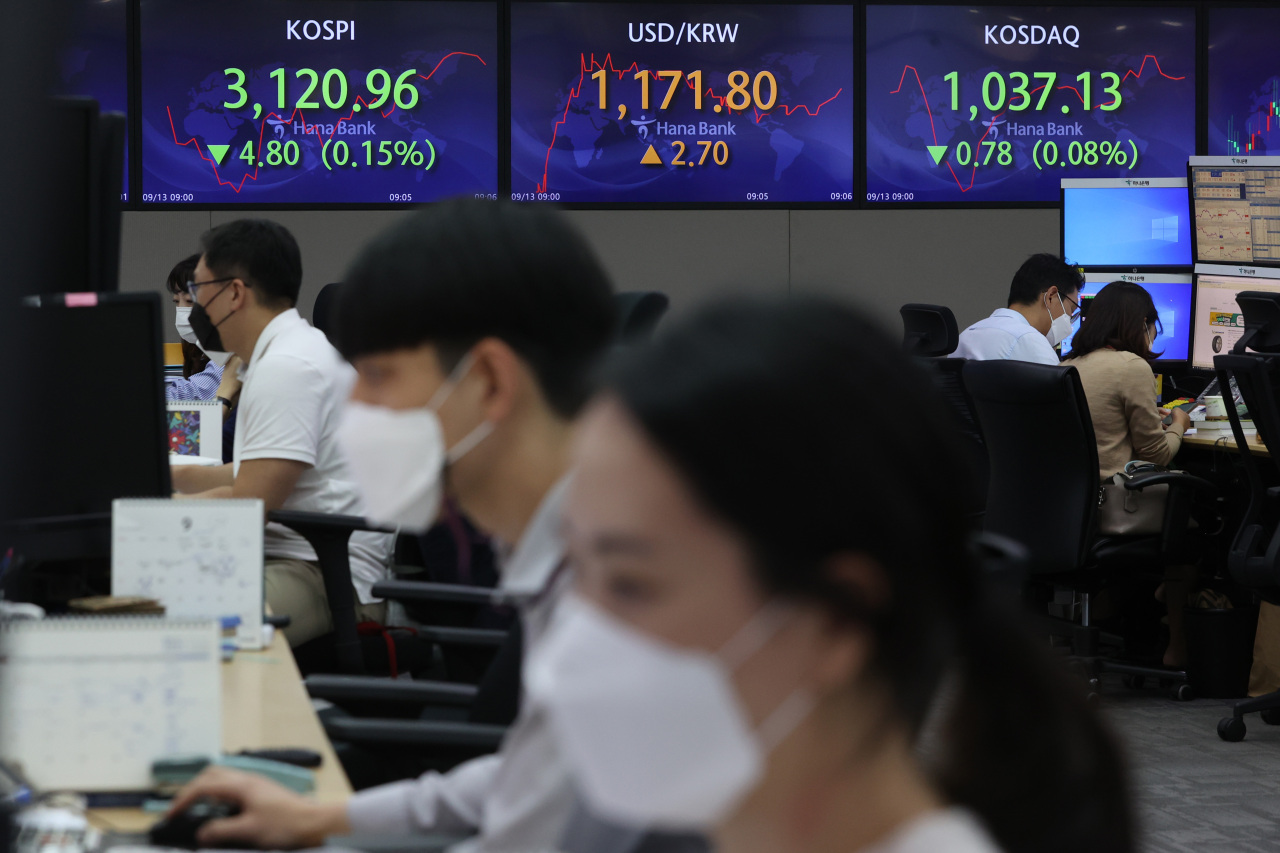Nearly half of public companies see staff numbers drop this year: report
By Yim Hyun-suPublished : Sept. 13, 2021 - 15:04

Nearly half of publicly traded companies in South Korea saw their number of staff drop during the first half of this year, signaling the continuing impact of the COVID-19 pandemic on the economy, a new report has revealed.
Among those 1,816 companies listed on either the main bourse Kospi or tech-loaded Kosdaq between 2018 and 2021, 859 reduced the number of staff from a year ago, according to the report released Monday by the Korea Economic Research Institute.
The drop in employee numbers was more severe among Kospi-listed firms, which tend to be bigger in size than their counterparts on the tech-laden Kosdaq market.
While 48.4 of Kospi-listed firms reduced numbers, the figure for Kosdaq-listed firms was 46.4 percent.
“If public companies, which are thought to be in a better economic environment, have taken a hit in terms of employment, the situation for small and medium business owners must be much direr,” the KERI said.
The scale of the drop in staff numbers decreased during the first half of this year, however, meaning that hopes for an economic recovery and an exit from the pandemic appear to have lessened the blow to employment.
But there are still more companies that are downsizing compared to pre-pandemic levels.
In 2020, 51.4 percent of firms saw their number of staff drop. The figure was 43 percent in 2019.
Since 2019, the number of workers at listed companies has continued to decrease. As of the first half of this year, the figure was 1.44 million, down 12,000 from one year ago. Compared to 2019, it was 45,000 fewer.
“Nearly half of firms have downsized this year and the total number of employees at listed companies has been also decreasing since 2019. As the economic prospect remains uncertain, the (COVID-19 pandemic) shock to employment might prolong,” the institute said.
At over 1 in 10 public companies, revenue and operating profits also dropped in addition to employee numbers, three of which the KERI said represent the potential, profitability and investment worthiness of a company.
“It is time for the government to make an all-out effort to support companies through policies such as easing regulations or improving employment flexibility so as to protect jobs and help them overcome the crisis,” said Choo Gwang-ho, head of the economic policy department at the KERI.
Among those 1,816 companies listed on either the main bourse Kospi or tech-loaded Kosdaq between 2018 and 2021, 859 reduced the number of staff from a year ago, according to the report released Monday by the Korea Economic Research Institute.
The drop in employee numbers was more severe among Kospi-listed firms, which tend to be bigger in size than their counterparts on the tech-laden Kosdaq market.
While 48.4 of Kospi-listed firms reduced numbers, the figure for Kosdaq-listed firms was 46.4 percent.
“If public companies, which are thought to be in a better economic environment, have taken a hit in terms of employment, the situation for small and medium business owners must be much direr,” the KERI said.
The scale of the drop in staff numbers decreased during the first half of this year, however, meaning that hopes for an economic recovery and an exit from the pandemic appear to have lessened the blow to employment.
But there are still more companies that are downsizing compared to pre-pandemic levels.
In 2020, 51.4 percent of firms saw their number of staff drop. The figure was 43 percent in 2019.
Since 2019, the number of workers at listed companies has continued to decrease. As of the first half of this year, the figure was 1.44 million, down 12,000 from one year ago. Compared to 2019, it was 45,000 fewer.
“Nearly half of firms have downsized this year and the total number of employees at listed companies has been also decreasing since 2019. As the economic prospect remains uncertain, the (COVID-19 pandemic) shock to employment might prolong,” the institute said.
At over 1 in 10 public companies, revenue and operating profits also dropped in addition to employee numbers, three of which the KERI said represent the potential, profitability and investment worthiness of a company.
“It is time for the government to make an all-out effort to support companies through policies such as easing regulations or improving employment flexibility so as to protect jobs and help them overcome the crisis,” said Choo Gwang-ho, head of the economic policy department at the KERI.


















![[Today’s K-pop] Treasure to publish magazine for debut anniversary](http://res.heraldm.com/phpwas/restmb_idxmake.php?idx=642&simg=/content/image/2024/07/26/20240726050551_0.jpg&u=)